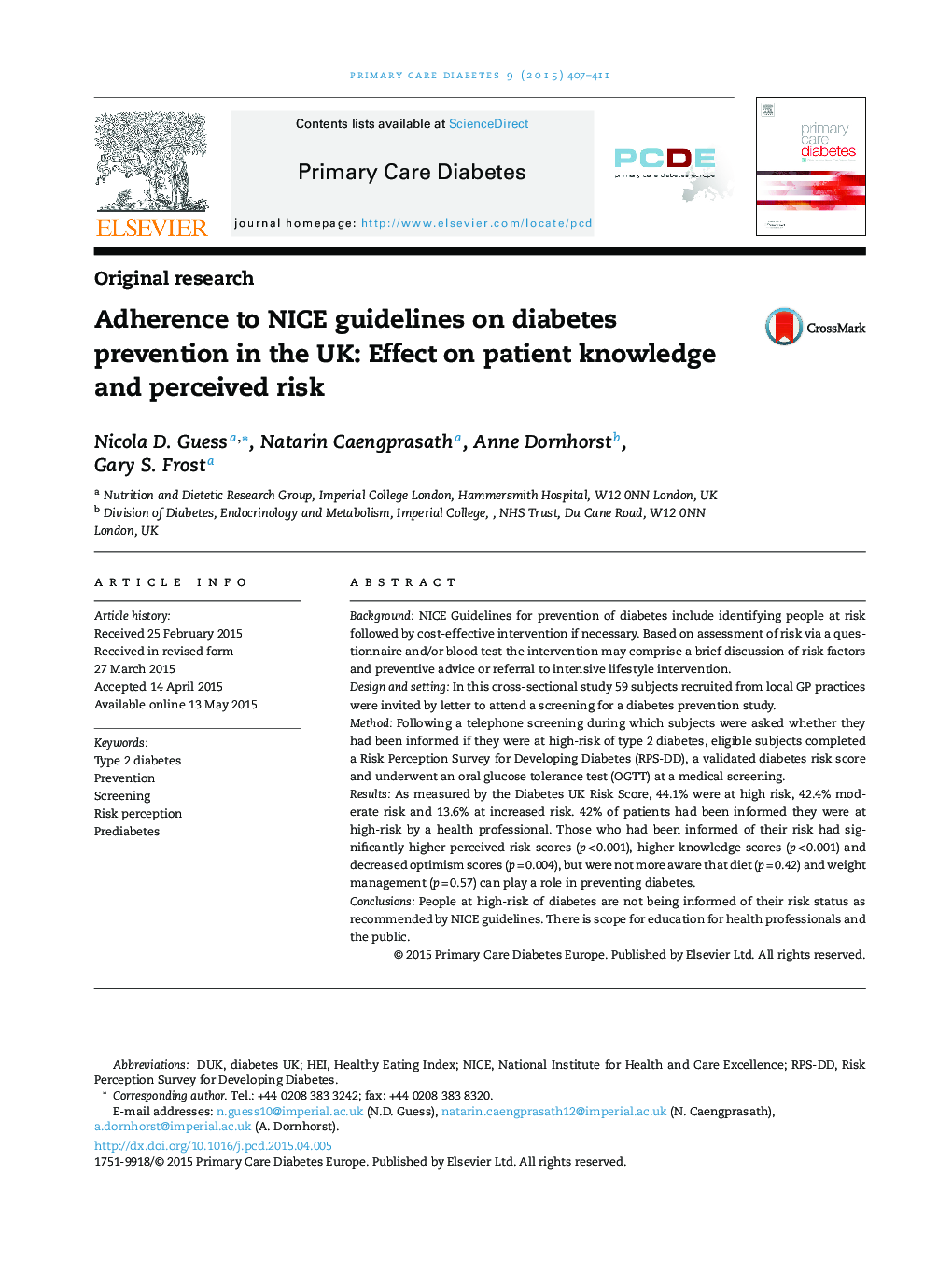| Article ID | Journal | Published Year | Pages | File Type |
|---|---|---|---|---|
| 2675427 | Primary Care Diabetes | 2015 | 5 Pages |
•We examined patients’ experiences of diabetes risk assessment in primary care.•Patients at high-risk of diabetes are often not informed of their risk status.•Many patients are not informed of the role of lifestyle in diabetes risk reduction.•There is scope for educating both health professionals and the public.
BackgroundNICE Guidelines for prevention of diabetes include identifying people at risk followed by cost-effective intervention if necessary. Based on assessment of risk via a questionnaire and/or blood test the intervention may comprise a brief discussion of risk factors and preventive advice or referral to intensive lifestyle intervention.Design and settingIn this cross-sectional study 59 subjects recruited from local GP practices were invited by letter to attend a screening for a diabetes prevention study.MethodFollowing a telephone screening during which subjects were asked whether they had been informed if they were at high-risk of type 2 diabetes, eligible subjects completed a Risk Perception Survey for Developing Diabetes (RPS-DD), a validated diabetes risk score and underwent an oral glucose tolerance test (OGTT) at a medical screening.ResultsAs measured by the Diabetes UK Risk Score, 44.1% were at high risk, 42.4% moderate risk and 13.6% at increased risk. 42% of patients had been informed they were at high-risk by a health professional. Those who had been informed of their risk had significantly higher perceived risk scores (p < 0.001), higher knowledge scores (p < 0.001) and decreased optimism scores (p = 0.004), but were not more aware that diet (p = 0.42) and weight management (p = 0.57) can play a role in preventing diabetes.ConclusionsPeople at high-risk of diabetes are not being informed of their risk status as recommended by NICE guidelines. There is scope for education for health professionals and the public.
